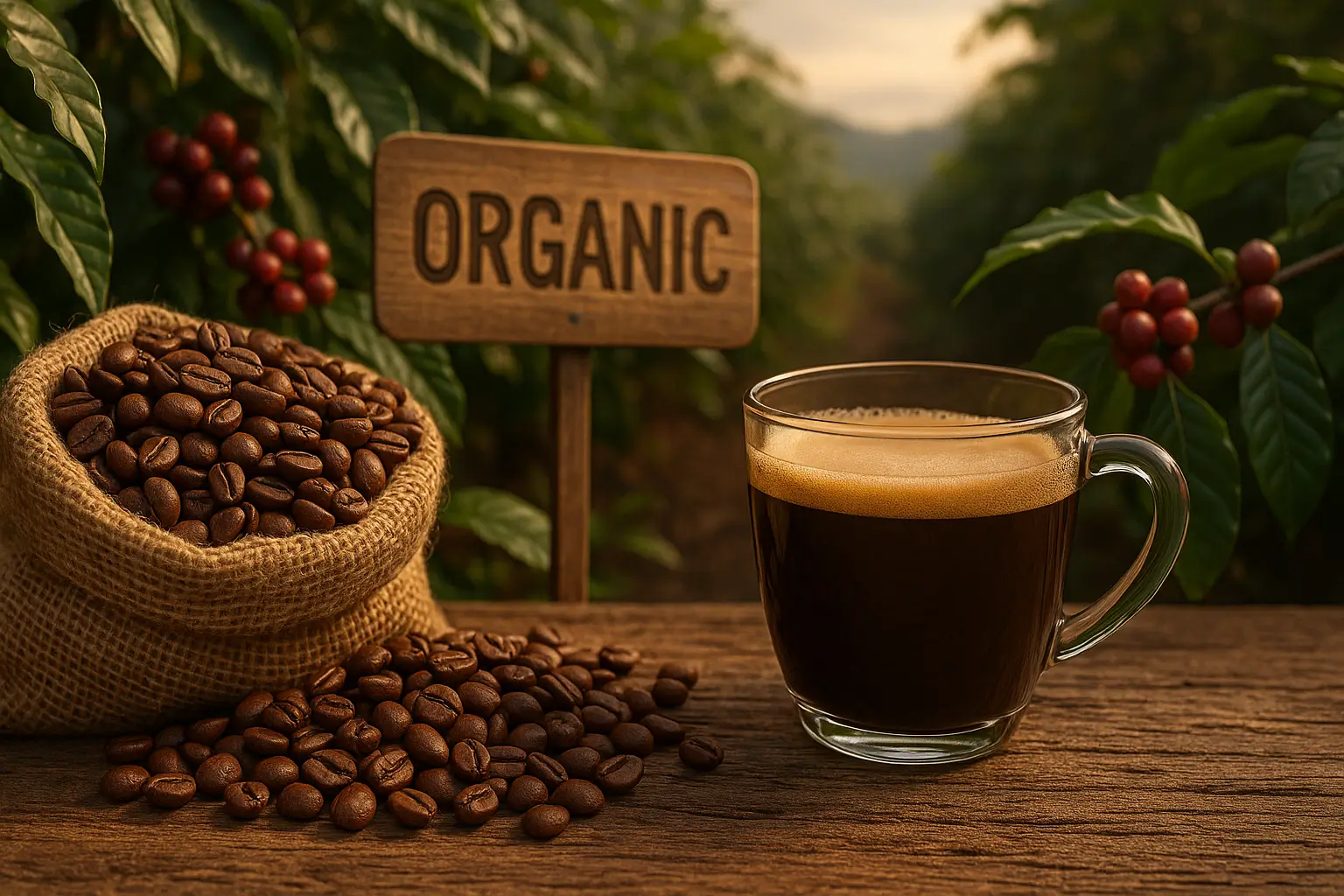With growing concerns about health, sustainability, and ethical consumption, more people are turning to organic coffee. But is it truly better for you, the environment, and coffee farmers—or is it just a label with a higher price tag? In this article, we explore what makes coffee “organic,” how it compares to conventional beans, and whether it’s worth including in your daily brew.
What Is Organic Coffee?
Organic coffee is grown without the use of:
- Synthetic fertilizers
- Chemical pesticides
- Genetically modified organisms (GMOs)
Instead, organic coffee farms rely on natural methods like composting, crop rotation, shade-growing, and organic pest control. To be officially labeled “organic,” coffee must meet strict standards set by certifying organizations such as:
- USDA Organic (United States)
- EU Organic (European Union)
- JAS Organic (Japan)
These certifications ensure that both the growing process and post-harvest handling meet eco-friendly, chemical-free standards.
How Is Organic Coffee Different from Conventional Coffee?
The key differences go beyond farming practices and impact health, environment, and taste.
1. Farming Practices
Organic:
- Uses natural compost and mulch
- Encourages biodiversity
- Often shade-grown to preserve ecosystems
Conventional:
- Relies heavily on chemical fertilizers and pesticides
- Often uses monoculture farming
- May contribute to deforestation and soil degradation
2. Environmental Impact
Organic farming is generally more sustainable. It helps:
- Reduce soil erosion
- Improve water retention
- Protect pollinators and wildlife
- Maintain natural habitats
Conventional methods, while more efficient for mass production, often harm local ecosystems and contaminate water supplies.
3. Health Considerations
Organic coffee is free of synthetic pesticide residues, which some consumers prefer for health reasons. While roasted coffee typically contains very low residue levels, choosing organic may reduce long-term exposure.
There’s also less risk of mold or mycotoxins due to better post-harvest handling in certified organic operations.
4. Taste and Quality
Taste is subjective, but many coffee enthusiasts argue that organic beans offer:
- Cleaner flavor profiles
- Better expression of origin and terroir
- More natural sweetness and complexity
This is partly due to careful farming practices and often smaller, quality-focused lots.
Is Organic Coffee More Expensive?
Yes, organic coffee typically costs more. Reasons include:
- Higher labor and production costs
- Lower yields compared to conventional methods
- Certification expenses
- More complex supply chains
However, the higher price often supports:
- Fair wages for farmers
- Long-term soil health
- Environmental conservation
Who Benefits from Organic Coffee?
1. The Environment
Organic farming reduces pollution, conserves water, and promotes biodiversity. It’s a step toward reversing some of the damage caused by industrial agriculture.
2. Farmers
Certified organic farms often provide better conditions for workers and sometimes receive higher prices per pound—especially when combined with Fair Trade or Direct Trade practices.
3. Consumers
While the health benefits are debated, many people feel more comfortable knowing their coffee is free from synthetic chemicals and produced responsibly.
What to Look for When Buying Organic Coffee
Not all “natural” or “eco-friendly” labels are the same. For true organic standards, look for these on packaging:
- USDA Organic (United States)
- EU Organic logo (green leaf with white stars)
- Fair Trade Certified (for ethical sourcing)
- Shade Grown (often linked to organic farming)
Also, check the roast date—freshness matters just as much as certification.
Can Organic Coffee Also Be Specialty Coffee?
Absolutely. Many specialty roasters offer organic single-origin beans that meet both flavor and farming standards. In fact, organic methods often complement the goals of the specialty coffee movement, such as:
- Transparency in sourcing
- Traceability to specific farms
- Emphasis on quality over volume
When Is Organic Coffee Worth It?
Worth It If You:
- Care deeply about environmental sustainability
- Prefer cleaner agricultural methods
- Want to support ethical and eco-conscious brands
- Are sensitive to chemicals or seeking a more natural diet
Maybe Not Necessary If You:
- Primarily drink coffee for the caffeine
- Are on a tight budget
- Already buy from small-scale, transparent producers (who may farm organically but lack certification)
Final Thoughts: More Than a Label
Organic coffee can offer peace of mind, environmental benefits, and in many cases, better flavor. But the value depends on your personal priorities.
If you care about where your coffee comes from, how it’s grown, and its impact on the planet, organic coffee is likely worth the extra investment. Pair it with a great brewing method and you’ll not only feel better—you’ll taste the difference.
